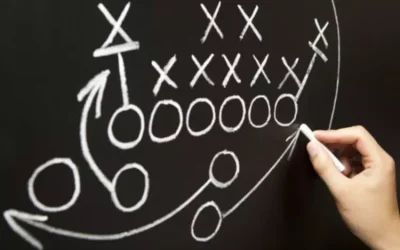Someone who frequently binge drinks or has more than eight drinks a week (female) or 15 drinks a week (male) could also be primed for having withdrawal symptoms. Alcohol causes anxiety because it upsets hormones, brain function, and sleep. When the body and mind haven’t had the opportunity to rest, a person may feel on edge and irritable. If a person is also taking antidepressants, which is not uncommon for people with anxiety, the combination of the two worsens the condition and can trigger a severe panic attack. Some may experience an onset of anxiety attacks shortly after consuming alcohol, while others may notice a sudden escalation of existing anxiety symptoms. Understanding the immediate impact of alcohol on anxiety is crucial for individuals navigating their mental health and making informed choices about alcohol consumption.

One hypothesis emerging from the comorbidity literature is that anxiety and AUDs become intertwined in a reciprocal, perpetuating cycle. This positive feedback loop often is characterized as a feed-forward or mutual-maintenance pattern. The psychosocial impact of alcoholism also has been implicated in the genesis of anxiety. Social consequences of habitual excessive drinking are common and include pervasive and https://ecosoberhouse.com/article/alcohol-and-anxiety-can-drinking-cause-panic-attacks/ cumulative problems in vital areas of life, such as employment, interpersonal relationships, and finances (Klingemann 2001; Klingemann and Gmel 2001). In fact, such difficulties in everyday living are so intertwined with heavy use that they are reflected in the DSM–IV criteria for AUDs (APA 2000). The interaction between pathologic alcohol use and enhanced life stress can lead to anxiety in at least two ways.
Sleep disruption
When you drink alcohol your brain releases a burst of serotonin that can make you feel euphoric and confident, only to crash when you stop drinking and your serotonin levels are lowered dramatically. Although panic attacks themselves aren’t life-threatening, they can be frightening and significantly affect your quality of life. If you think you have a problem with alcohol, https://ecosoberhouse.com/ seek help from your doctor right away. In the United States, “moderate” typically refers to two drinks a day for adult men and one for women. Older adults metabolize alcohol faster, so if you’re in this age group, limit yourself to one alcoholic beverage per day. Research shows that people with alcoholism find it difficult to recover from traumatic events.
During a panic attack, we leap into hyper-activation with physical, cognitive, and emotional symptoms. Still, what distinguishes panic from other anxiety disorders is the marked bodily symptoms. And Mr. B had experienced their first panic attacks 1 month after abrupt cessation of alcohol abuse. They had no history of panic attacks during or immediately after the alcohol abuse period.
Pharmacotherapy for Anxiety Disorders
From the psychological perspective, behavioral research demonstrates that drinking to cope with negative affect is a potent marker for current and future problems with alcohol. Neuroscientific research implicates overlapping neurobiological systems and psychological processes in promoting the rise of negative affect and alcohol misuse. The psychiatric perspective that alcohol misuse and co-occurring anxiety represent neurobiologically distinct diagnostic conditions has dominated the field for many decades.
Substance/Medication-Induced Anxiety Disorder – Verywell Mind
Substance/Medication-Induced Anxiety Disorder.
Posted: Mon, 19 Jun 2023 07:00:00 GMT [source]
This can help to show you if your anxiety gets worse when you drink alcohol. In small amounts, alcohol can increase your levels of a neurotransmitter called GABA. Neurotransmitters are chemical messengers which have different effects on the body. GABA has a relaxing effect on the brain, which is why having an alcoholic drink can make you feel temporarily relaxed. But, if you drink a lot you can reduce your levels of GABA, causing an increase in anxiety. Taken together, the epidemiological and clinical literature describing the relationship between anxiety and AUDs shows that this comorbidity is both prevalent and clinically relevant.
Alcohol Detox: Guidelines for Successfully Detoxifying from Alcohol
For augmenting treatment for AUD, would targeting biological stress reactivity (e.g., hypothalamic pituitary adrenal activation) be more promising than targeting anxiety disorders? Among people who have problems with alcohol, do those with versus those without co-occurring anxiety disorder react differently to protracted abstinence and withdrawal in terms of severity and persistence of dysregulation of the stress response? Prospective studies across the distinct stages of treatment and recovery for alcohol-related disorders may shed needed light on the relationships between alcohol, anxiety, and stress reactivity and regulation. Such studies have the potential to reveal the trajectory of re-regulation of the stress response during abstinence and how it relates to anxiety symptoms and relapse risk. Understanding these parameters could make a valuable contribution toward using the stress system as a recovery biomarker. Not all people struggling with alcohol problems meet diagnostic criteria for anxiety disorders.
In essence, clients need to show assertiveness to engage in the parallel process of ending relationships and habits that are high risk for relapse while also proactively initiating contacts and improving relationships with others who will support recovery efforts. Therefore, clients in CBT who also have social anxiety may particularly benefit from additional practice with assertiveness, perhaps including adjunctive social-skills training. Mr. B, a 42-year-old automobile repairman, had a history of alcohol abuse for 16 years. He decided to stop drinking because of the unending insistence of his family and coworkers. However, approximately 1 month after the sudden cessation of alcohol abuse, he started to experience spontaneous episodes of panic attacks, with shortness of breath, chest pain, palpitations, trembling, and a fear that he was going to die. These attacks even interrupted his sleep; he would waken abruptly with a choking sensation.

